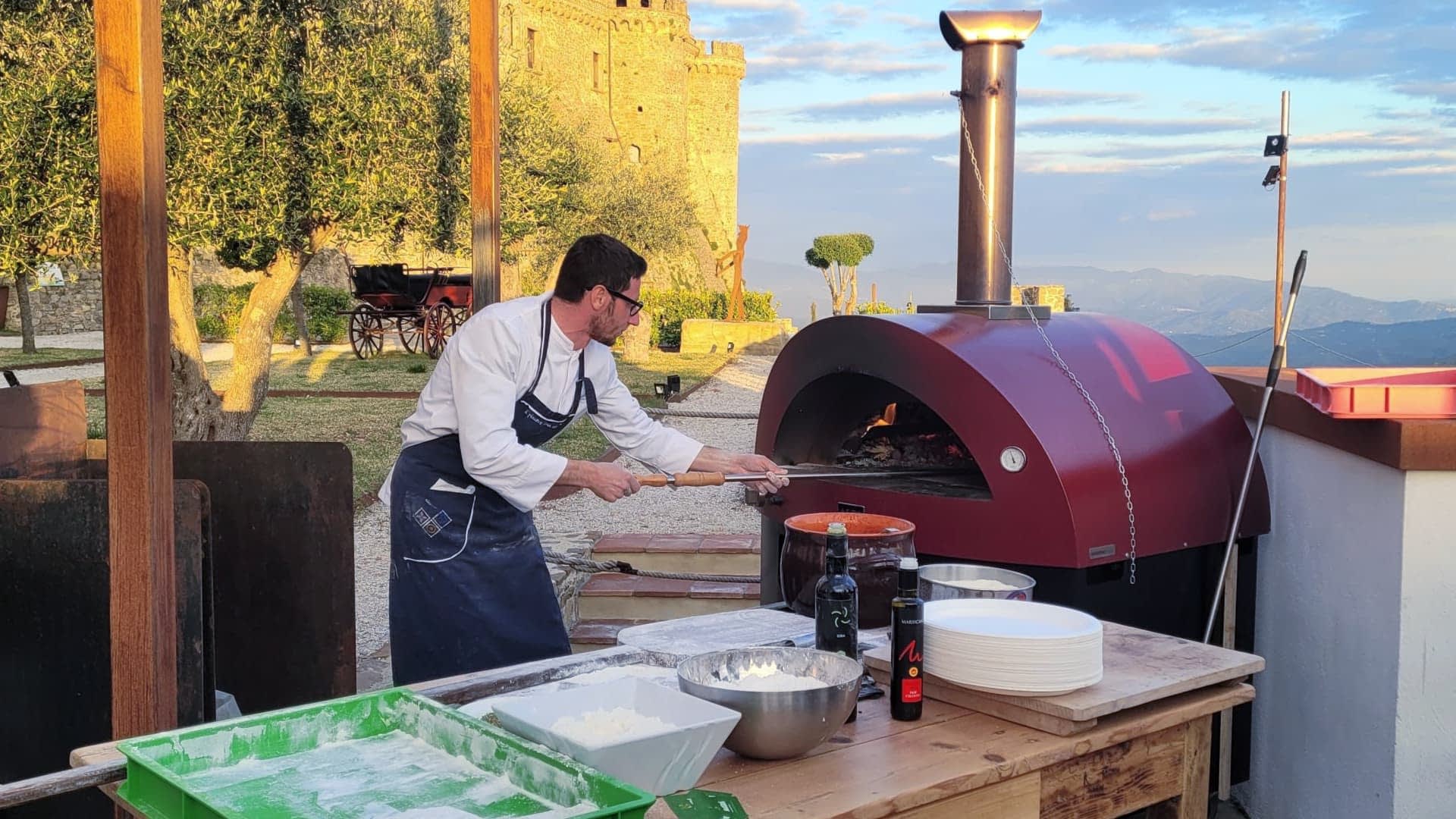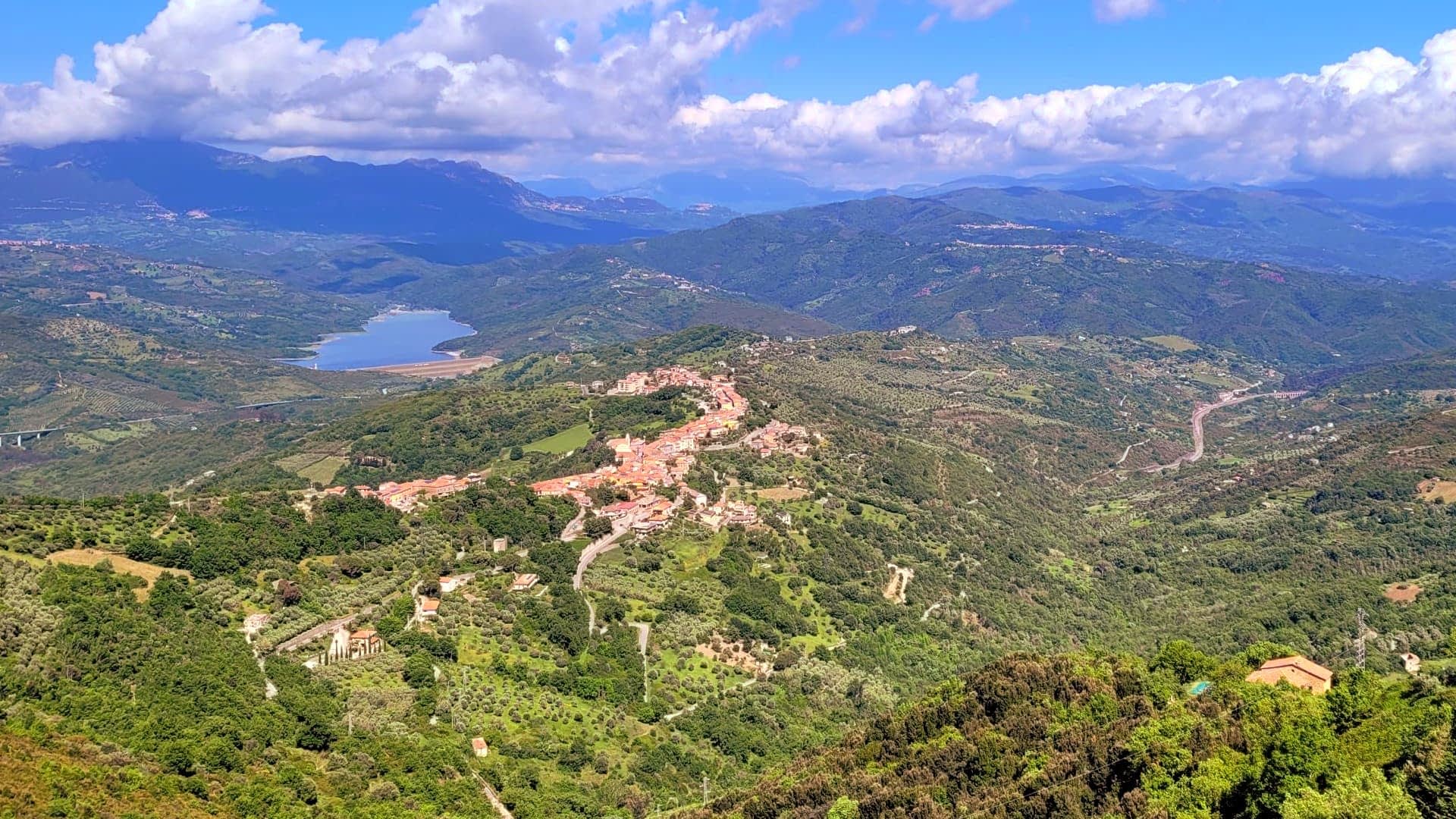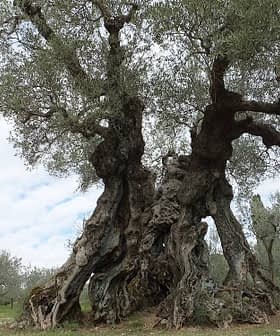Organizers and attendees have hailed the premier OlivitalyMed festival as a success.
Held from May 4th to 6th at the thousand-year-old Castle of Rocca Cilento in Campania, the event brought together producers, policymakers and enthusiasts for tastings, conferences and discussion.
For the national players, (OlivitalyMed) was a moment of discussion to define the current critical issues and draw a path towards the future of extra virgin olive oil.
“It is a success that makes us proud and the realization of his dream to establish an event in Cilento that demonstrates the thousands of facets of extra virgin olive oil,” said the Sgueglia family, the venue’s owner and organizer.
The event was the brainchild of the late Stefano Sgueglia. “He had imagined a transversal program capable of satisfying both the expectations of professionals and the curiosity of newcomers,” the family said. “Indeed, during these three days, the many visitors have shown great interest and crowded the rooms and spaces of the castle.”
See Also:Festivals and Conferences Build Momentum for Pakistani Olive Oil SectorOlive oil enthusiasts and industry experts in attendance had the opportunity to participate in free and guided tastings and conferences about health, cooking and science.
It was no coincidence that Cilento was the chosen venue for OlivitalyMed. The southern part of the province of Salerno is the birthplace of the study that led to the scientific validation of the Mediterranean diet.
In 1962, Ancel Keys and his team of researchers settled in Pioppi, where they started researching for the Seven Countries Study to investigate the correlation between diet, lifestyle and cardiovascular disease.
“This is an important initiative for this area, which is devoted to the production of extra virgin olive oil and where the foundations of the Mediterranean diet were laid down over 40 years ago,” said Giuseppe Coccorullo, the president of the Cilento, Vallo di Diano and Alburni National Park authority.
“The olive tree is a fundamental plant of our park, where the different olive varieties enrich the local biodiversity,” he added. “The Mediterranean diet is not only a world heritage but an asset for the local economies; it is not just a dietary pattern but a lifestyle, which finds its ideal setting in this environment, where outdoor activities and sports can be practiced safely and healthily.”
During the festival, a spacious hall hosted the stands of extra virgin olive oil producers from Campania. At the same time, another large area was dedicated to producers from other Italian regions and some of the Mediterranean Diet Emblematic Communities.
In these spaces, visitors and buyers could talk with producers and enjoy a free tasting of their products.
In the outdoor areas, the attendees found the stands of several local food artisans, offering seafood and plant-based dishes, pastry and bakery products, gelato and cocktails paired with the best extra virgin olive oils from Cilento.
Among them was the pizza maker Cristian Santomauro, one of the ambassadors of the Mediterranean diet, who prepared Ammaccata, a typical pizza baked in a wood-burning oven.

Cristian Santomauro prepares Ammaccata during the OlivitalyMed festival at Castello di Rocca. (Photo: Ylenia Granitto)
Ammaccata is a registered trademark in the national list of Traditional Agri-food Products, which have such a limited diffusion that they are not eligible for the European Union Protected Designation of Origin and Protected Geographical Indication certifications but still offer a quality guarantee.
“This is an ancient recipe that I have learned from my grandmother, Teresa,” Santomauro said. “Unlike pizza, it is not round but oval. Its composition includes three ancient grains: Saragolla durum wheat and a mix of Risciola and Carosella soft wheat.”
Santomauro kneads the dough by hand in a large wooden trough before topping it with different ingredients.
“Every type of Ammaccata is paired with an extra virgin olive oil,” he said. “Today, I am preparing the ‘classic’ version with cooked tomato sauce, mountain oregano, grated aged Cilento cacioricotta cheese and a Rotondella monovarietal.”
“There are two more versions, one called ‘Schietta’ (Italian for outspoken), which I prepare with garlic, oregano, Menaica anchovies and a monovarietal of Salella, and one closed like a calzone, stuffed with wild vegetables cooked with a Cilento PDO extra virgin olive oil,” he added. “To this stuffing, according to the season, I add Menaica anchovies, cracked Salella olives or Cilento cacioricotta, all Slow Food Presidia.”
The informative segment of OlivitalyMed began with a discussion of harmony and extra virgin olive oil led by conductor Giuseppe Vessicchio and nutritional science specialist Michele Scognamiglio.
The cycle of conferences scheduled for the event then started with a seminar on the sciences of extra virgin olive oil, which offered an overview of the latest research developments with a focus on nutrition and disease prevention.
Among the speakers was Raffaele Sacchi, coordinator of the degree course in Mediterranean gastronomic sciences at the Department of Agriculture of the University of Naples ‘Federico II.
“Extra virgin olive oil is the most powerful functional food of the Mediterranean diet,” he said. “Its importance in daily use, both raw and during cooking, is demonstrated by the numerous beneficial and preventive functions, including anti-inflammatory, antioxidant and anti-aging, hypotensive, cardio- and neuro-protective, anti-diabetic, satiating, and so on.”
“Furthermore, it is a fragrant, pungent, lively food, an active ingredient in all our traditional preparations, from ragù to fried foods, from canned tuna to desserts and even gelato,” Sacchi added.
A series of masterclasses, including guided tastings, took place over three days: a sensory analysis of extra virgin olive oils with designations of origin produced in Campania, led by Maria Luisa Ambrosino, the Naples Chamber of Commerce panel leader.
The event also featured guided tastings of oils from the Gargano area of Puglia and the wider Mediterranean basin. Another event focused on how extra virgin olive oil flavors vary between regions.
The program continued with a conference on oleotourism with representatives from Campania and national and local associations.

View from the Castle of Rocca venue of OlivitalyMed (Photo: Ylenia Granitto)
Then, the conference titled “Evofuturo” with experts and representatives of producer organizations focused on the sector’s prospects and forthcoming challenges.
This was followed by a talk titled “Conversations about Pizza” between pizza chef Franco Pepe (featured in Netflix’s Chef’s Table Pizza), producer and miller Nicolangelo Marsicani and journalist Stefano Carboni.
“This talk has brought to light some critical issues and several elements to work on, like the importance of the consumer education to quality, the recognizability of the product linked to the territoriality and the actions to be taken to improve the communication,” Carboni said.
The event discussed the emerging role that catering can play in promoting extra virgin olive oil as a key ingredient in regional cuisines.
“However, we can say that today, consumers’ awareness is increasing, and we all have more critical tools to choose the food we put on our table,” Carboni said. “In this sense, I borrow the renowned sentence by the philosopher Ludwig Feuerbach, ‘we are what we eat,’ to say that today ‘we eat what we are.’”
These observations prompted a rich discussion that continued during the conclusive conference on the role of extra virgin olive oil in the catering sector.
“OlivItalyMed was not only a moment for technical analysis and business meetings, but above all, an exchange of views, cultures and knowledge,” said Marsicani, who was responsible for the technical organization of the event.
“For Cilento, an iconic place for extra virgin olive oil, it was a moment of comparison with other olive cultivations that seem to perform better on the markets, and this comparison, if done with foresight and intelligence, can provide the inspiration for improving the autochthonous productions by enhancing their authenticity,” he added.
“For the national players, it was a moment of discussion to define the current critical issues and draw a path towards the future of extra virgin olive oil,” Marsicani continued.
Organizers said the event provided an opportunity to pull local and national producers into the future, encouraging them to abandon traditional practices that lower quality and embrace a new culture centered around “fruity, bitter and spicy extra virgin olive oil enlivened by aromaticity and beauty.”
The organizers are already working on the next edition of OlivitalyMed. All the information can be found on the event website.









